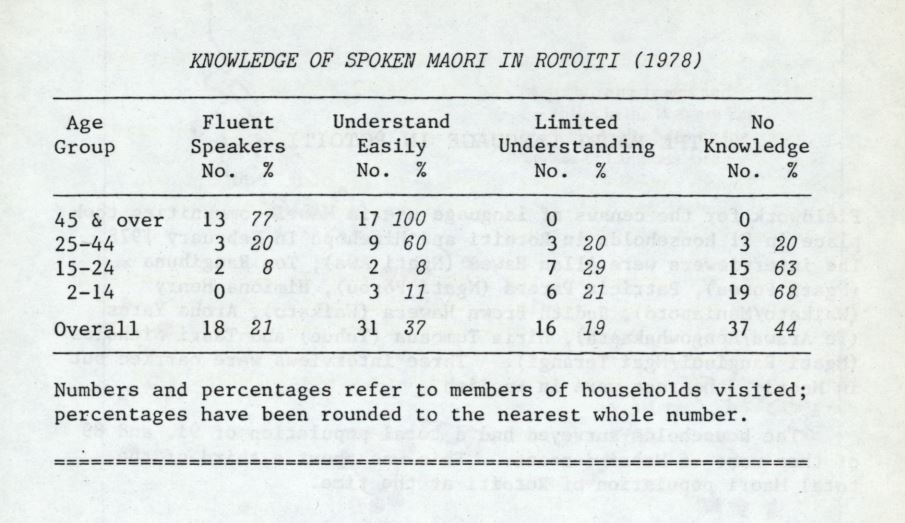-
Ngā Karere me Ngā Rauemi
News and Resources
Ngā Karere me Ngā Rauemi
News and Resources
-
Te Rangaihi Reo Māori
The Movement
Te Rangaihi Reo Māori
The Movement
-
Te Pae Kōrero
Our Community
Te Pae Kōrero
Our Community
-
Huihuinga
Events
Huihuinga
Events
-
Ngā Ara Ako
Learning Pathways
Ngā Ara Ako
Learning Pathways
-
SearchSearch
Search
Search

Although many people mentioned that fewer and fewer people knew or used Maori as their everyday language in the home and community, Maori was still important in the culture and lives of many people we spoke with, especially the kaumatua.
Many young adults and parents were sorry they could not speak or understand the language better, although their parents spoke Maori well. Some felt that an important part of how they saw themselves as Maori was therefore missing, as they were now unable to teach their own children the language. Grandparents often carried out this important task, although some children had shown they were not interested in Maori lessons in the home. English was almost the only language used on television and radio, in schools and in the community, and this seems to have made people believe that it was a Pakeha world and that Maori was of little use outside of the marae. On the other hand, many people wanted Maori taught in schools, particularly in primary schools. Some parents felt that this may well be the only chance their children would ever have of learning the language."
Source: Read the full NZCER report here
Te Moana-ā-Toi | Bay of Plenty | Rotorua | 1970-79 | Story is by tangata whenua
















Comments